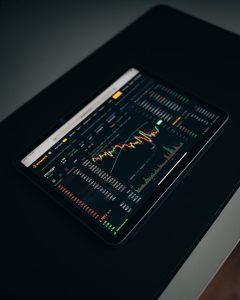In the forex market, spreads refer to the difference between the bid price and the asking price of a currency pair. Essentially, it is the cost of trading a particular currency pair, and it is determined by various factors. The spread is an essential component of forex trading, and traders need to understand why spreads increase forex.
The first reason why spreads increase in forex is due to market volatility. Volatility refers to the degree of price fluctuation of a currency pair. If a currency pair is highly volatile, the spread tends to widen. This is because the market makers, who are responsible for setting the spreads, want to protect themselves from the risk of sudden price fluctuations. They increase the spread to compensate for the increased risk they are taking on.
Another reason why spreads increase in forex is due to liquidity. Liquidity refers to the ease with which a currency pair can be bought or sold. If a particular currency pair is highly liquid, the spread tends to be lower. This is because there are more buyers and sellers in the market, which means that the market makers can make money on the bid-ask spread. However, if a currency pair is not very liquid, the spread tends to be wider. This is because the market makers have to compensate for the increased risk they are taking on by widening the spread.
Economic events can also cause spreads to increase in forex. Economic events such as central bank meetings, interest rate decisions, and economic data releases can cause significant volatility in the forex market. When these events occur, the market makers increase the spread to compensate for the increased risk they are taking on. This is because they are unsure of how the market will react to the news, and they want to protect themselves from any sudden price movements.
Moreover, the time of day can also cause spreads to increase in forex. The forex market is open 24 hours a day, five days a week. However, the market is not equally active throughout the day. The most active trading hours are when the major financial centers such as London, New York, and Tokyo are open. During these hours, the spreads tend to be lower. However, during the quieter trading hours, such as the Asian session, the spreads tend to be wider. This is because there is less liquidity in the market, and the market makers have to widen the spread to compensate for the increased risk they are taking on.
In conclusion, spreads are an essential component of forex trading, and traders need to understand why they increase. Spreads increase in forex due to various factors such as market volatility, liquidity, economic events, and time of day. Traders need to be aware of these factors and adjust their trading strategies accordingly. By doing so, they can minimize the impact of wider spreads on their trading performance.





